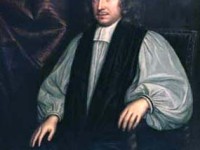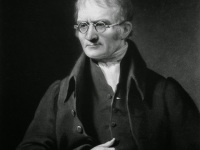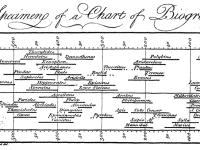John Wilkins and the Universal Language
On February 14, 1614, Anglican clergyman, natural philosopher and author John Wilkins was born. Wilkins was one of the founders of the Royal Society and a polymath, although not one of the most important scientific innovators of the period. He is particularly known for An Essay towards a Real Character and a Philosophical Language (1668) in which, amongst other things, he proposed a universal language and a decimal system of measures which…
Read more




